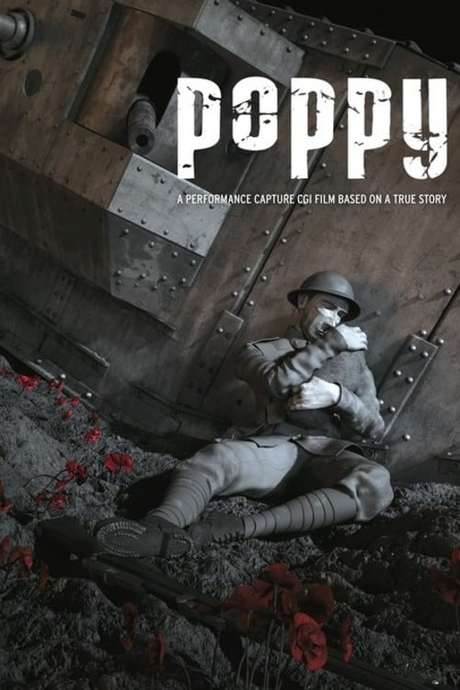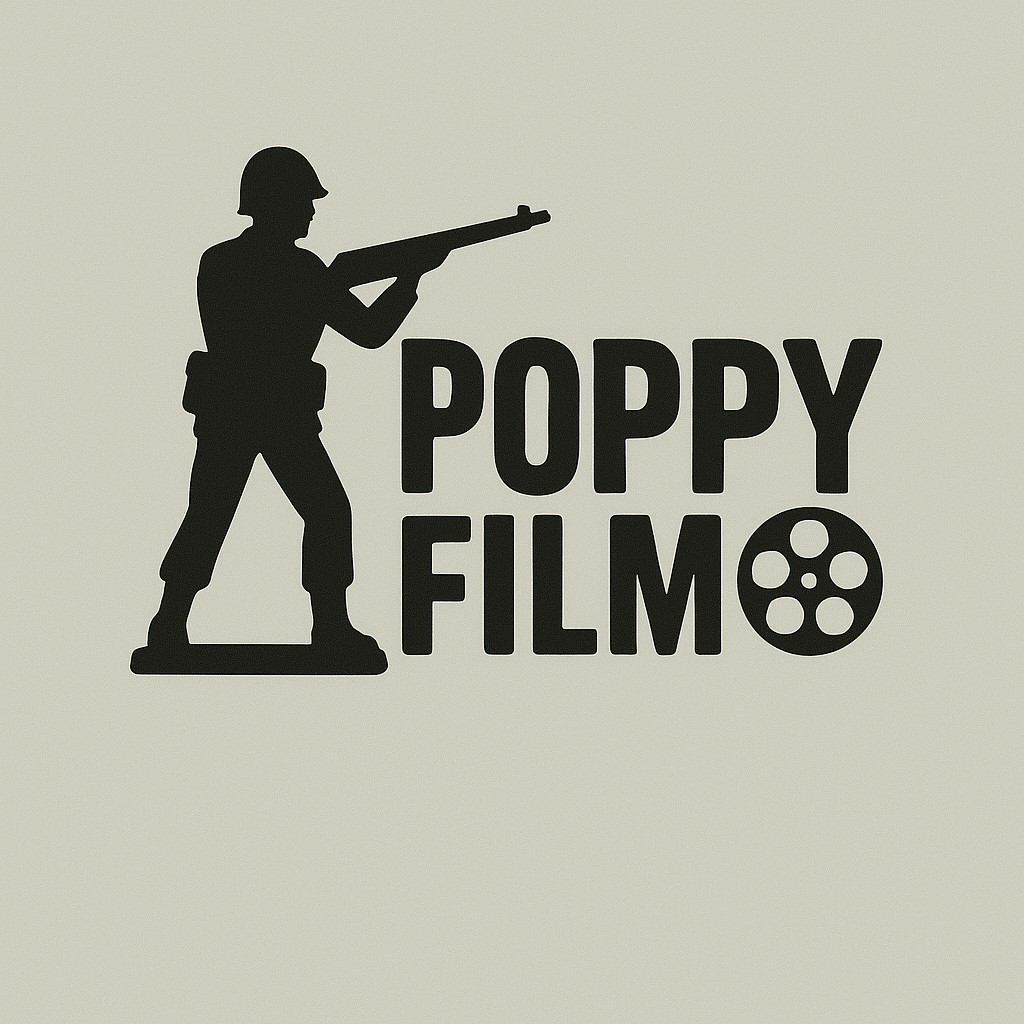
Director: James Cunningham
Genre: Animation, Drama, War
Runtime: 10 minutes
Language: English
IMDb Rating: Not specified
Plot: A Heart-Wrenching Decision on the Western Front
Set against the grim backdrop of World War I’s Western Front, Poppy follows two New Zealand soldiers, Paddy (Matthew Sunderland) and Jack (Paul Glover), who find themselves trapped behind enemy lines. While navigating the treacherous terrain, they discover an orphaned baby lying in a muddy ditch beside its deceased parents. This unexpected encounter forces the soldiers into a moral quandary: Paddy is determined to save the child, seeing it as a chance for redemption, whereas Jack is reluctant, prioritizing their survival. The narrative unfolds as they grapple with this life-altering decision amidst the chaos of war.
Visual Style: Merging Performance Capture with CGI Realism
Director James Cunningham employs a groundbreaking blend of performance capture technology and computer-generated imagery (CGI) to bring Poppy to life. The film’s visual realism is achieved through meticulous motion capture of actors’ performances, which are then intricately animated to depict the harrowing realities of war. This technique not only enhances the emotional depth of the characters but also immerses viewers in the bleak and desolate landscapes of the Western Front. The attention to detail in the animation underscores the film’s commitment to portraying the somber atmosphere of its setting.
Visual Style: Merging Performance Capture with CGI Realism
Director James Cunningham employs a groundbreaking blend of performance capture technology and computer-generated imagery (CGI) to bring Poppy to life. The film’s visual realism is achieved through meticulous motion capture of actors’ performances, which are then intricately animated to depict the harrowing realities of war. This technique not only enhances the emotional depth of the characters but also immerses viewers in the bleak and desolate landscapes of the Western Front. The attention to detail in the animation underscores the film’s commitment to portraying the somber atmosphere of its setting.
Cast: Delivering Emotionally Charged Performances
Matthew Sunderland (Paddy): Embodies a soldier tormented by the atrocities of war, whose resolve to save the infant reflects his yearning for redemption.
Paul Glover (Jack): Portrays the pragmatic counterpart, emphasizing the harsh realities and survival instincts necessitated by their dire circumstances.
Camille Keenan (Nun): Features in a brief yet impactful role, symbolizing compassion and the remnants of humanity amidst conflict.
Marek Sumich (German Soldier): Adds to the authenticity of the wartime setting, representing the ubiquitous presence of the enemy.
The synergy between the actors’ performances and the film’s animation results in a poignant depiction of soldiers confronting profound ethical dilemmas.
Themes: The Intersection of War and Humanity
Poppy delves into the moral complexities faced by individuals during wartime. It explores themes of redemption, compassion, and the innate struggle between self-preservation and altruism. The film challenges viewers to reflect on the essence of humanity when confronted with the dehumanizing effects of war. By focusing on a personal narrative amidst a global conflict, Poppy highlights the profound impact of individual choices in shaping one’s moral compass.
Reception: Acclaimed for Technical Innovation and Emotional Depth
Poppy has garnered significant recognition within the film community for its innovative use of technology and compelling storytelling. Notably, it received the Jury Prize at SIGGRAPH 2010, a testament to its excellence in computer graphics and animation. The film was also featured in esteemed festivals such as Telluride and South by Southwest (SXSW), further cementing its status as a standout short film. Critics have lauded Cunningham’s ability to intertwine technical prowess with a deeply moving narrative, resulting in a film that resonates on both visual and emotional levels.
The Critic’s Verdict
James Cunningham’s Poppy is a masterful short film that seamlessly blends technological innovation with profound storytelling. Its exploration of moral dilemmas set against the backdrop of war offers a poignant commentary on the human condition. The film’s brevity does not diminish its impact; rather, it distills complex themes into a concise and powerful narrative that lingers with the audience.
Rating: 9/10
A compelling and emotionally resonant short film that exemplifies the potential of animated storytelling in conveying profound human experiences.
Pair With
The Red Turtle (2016) for another evocative animated exploration of human resilience, or Paths of Glory (1957) for a classic examination of the moral complexities in wartime.
Cultural Footprint
By bringing to light a lesser-known story from World War I, Poppy contributes to the broader narrative of New Zealand’s involvement in global conflicts. Its innovative use of CGI and motion capture has set a benchmark in the realm of animated short films, inspiring filmmakers to explore new avenues in storytelling. The film serves as an educational tool and a poignant reminder of the ethical challenges faced by individuals in times of war.
Additional
In addition to its compelling narrative and technical achievements, Poppy serves as a significant educational resource, shedding light on New Zealand’s involvement in World War I. The film offers a poignant exploration of the moral dilemmas faced by soldiers, providing viewers with a deeper understanding of the human aspects of war. Its inclusion in various film festivals and accolades, such as the Jury Prize at SIGGRAPH 2010, underscores its impact and relevance in both cinematic and historical contexts.
Furthermore, Poppy exemplifies the potential of animated short films to convey profound narratives that resonate across cultures and generations. Director James Cunningham’s meticulous attention to detail and dedication to storytelling have resulted in a film that not only entertains but also prompts reflection on themes of compassion, redemption, and the complexities of human nature during times of conflict.
